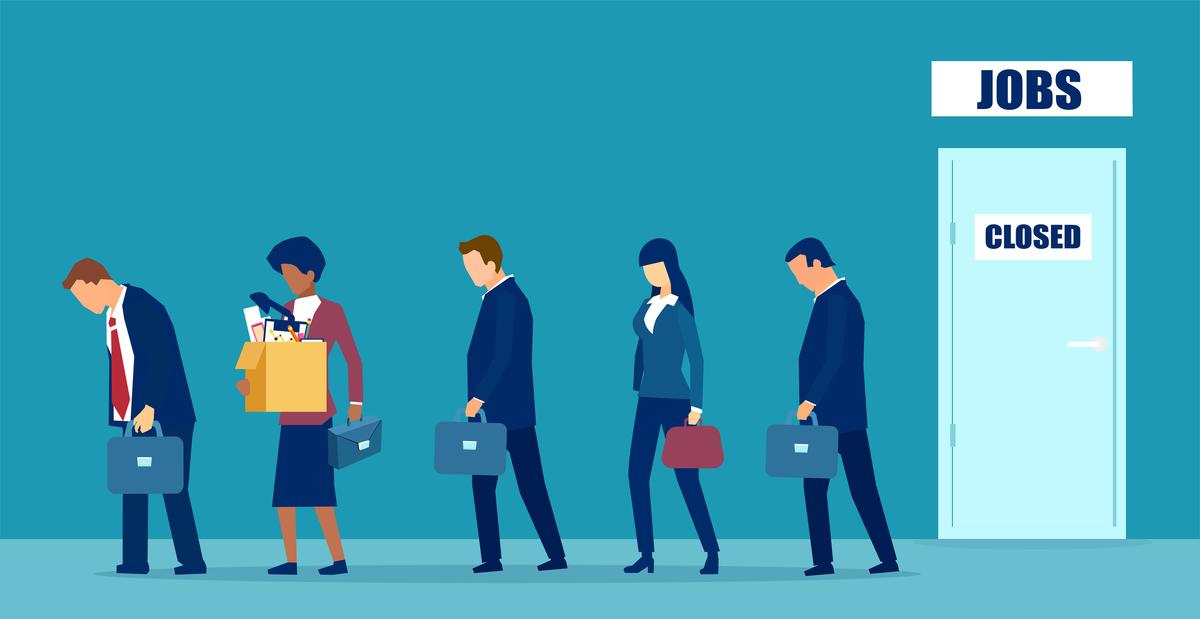The worst part was that no employee was consulted, and the layoffs were made without warning or regard for performance. The process was random, like a game of Russian Roulette. It was sudden and based solely on the needs of the company. The employee’s manager did not discuss it with them, and the layoffs did not reflect the employee’s performance. It was a sudden loss of everything, like a breakup.
Many companies over-hired and overspent during the pandemic but are now taking steps to fix their budgets. Layoffs damage a company’s reputation, but since it has become socially acceptable, every company wants to lay off employees without admitting that the employee performed poorly. It is akin to holding in gas in a fancy restaurant; if everyone is doing it, it feels less bad. Villains act alone, but those who protest collectively can be viewed as victims. The food, restaurant, or economy can be blamed for the situation.
Could tech giants have avoided laying off so many employees? This question raises another: why do layoffs happen in the first place? The answer is that leverage matters.
Tech Startups: Leveraging Debt to Grow Quickly, but What Happens if They Fail?
Tech firms were facing overextension and needed to enhance their resources through leverage. Leverage was considered a versatile tool, and the easiest way to gain influence was through stock loans. Tech startups leveraged this tool to raise funds, hire more people, offer free services, and grow quickly to dominate the market, even before they learned how to make money on each unit. It was acceptable for startups to lose money initially as long as they could become profitable. In such cases, debt was good, and investors were happy with faster returns.
However, what would happen if a business model failed and they could not make enough money?
Electric scooter company BIRD went bankrupt and burned.
Numerous Companies Copied Bird’s Electric Scooter Rental Business, but Its Popularity is Fading
The electric scooter trend of 2019 saw the streets filled with them, as dozens of other companies copied Bird’s rental model. Although affordable and a great way to travel around the city, their dangerous reputation made the business difficult. With customers abandoning their scooters in the street and a flawed business model, electric scooter manufacturers struggled to make it work. Despite Bird’s SPAC IPO valuing the company at $2.3 billion, it is now worth only $70 million, resulting in significant investor losses.
The Rise and Fall of SPACs: How the 2020 Greedy Market Led to Expensive Non-Profit Ventures
How did a non-profit become expensive? Blame it on 2020’s greedy market and SPACs. Unlike an IPO that can take years and requires SEC compliance, SPACs are quick and easy, allowing companies to go public without scrutiny. With venture capital funds flush with cash, anything mentioning Web3, Creator Economy, or Blockchain got funding. Crypto and NFTs made some people rich, leading even conservative investors to empty their savings accounts. But the music eventually stopped, and cash flooded the market, raising prices. The consensus was that “if you have cash, you’re a loser.” Even a potato photo and a duct-taped banana sold for over a million dollars. People would rather be poor together than excluded when others get rich.
Tech giants Overspending/overhiring
Interest rates are not to blame for what is happening. Even large tech companies are susceptible to FOMO (fear of missing out) and must invest in business growth to avoid losing out. Cash is no longer king, and even if companies like Google didn’t have an immediate use for the money raised or the people hired, they still worked hard to engage and deliver. As a result, many workers are now overqualified and doing low-impact work while making “day in the life” TikTok videos. For example, a 23-year-old Meta product manager documents her day with exercise, cute outfits, work meals, and social activities. However, things are starting to unravel, as even Ray Dalio now values cash and interest rates are normalizing. Tech companies must now undo the effects of their mismanaged leverage, and employees will pay the price. YouTube videos are becoming a necessity, and viewers are asked to comment and boost the creator’s self-esteem. The next video will be released soon.





Leave a Comment
You must be logged in to post a comment.